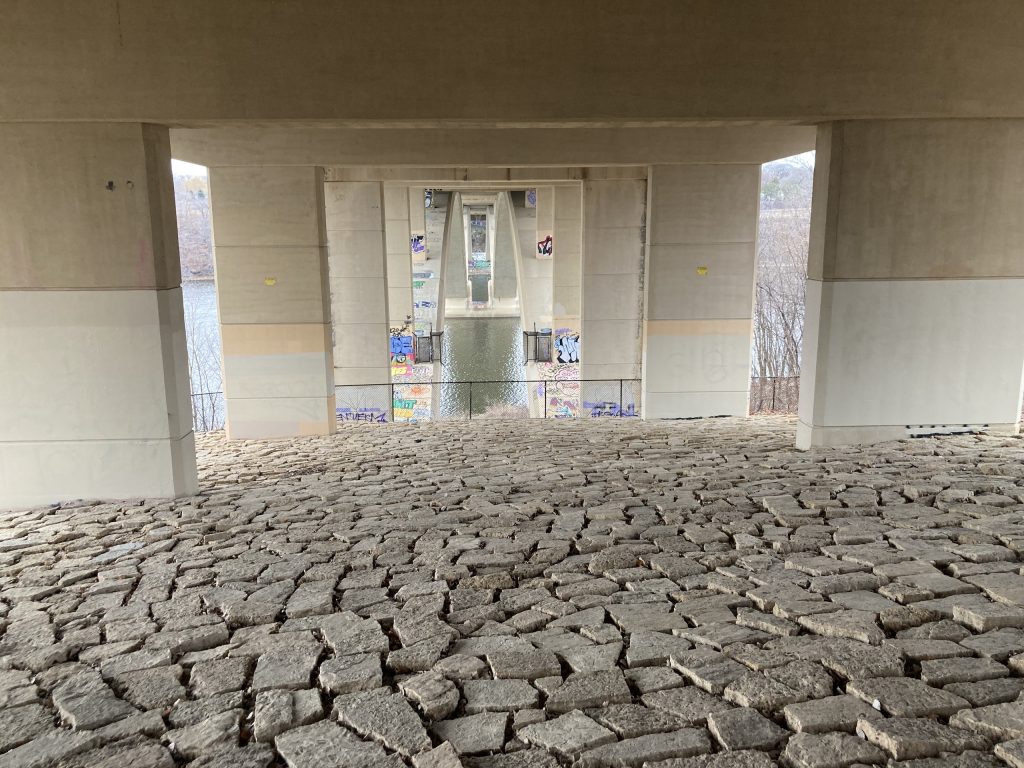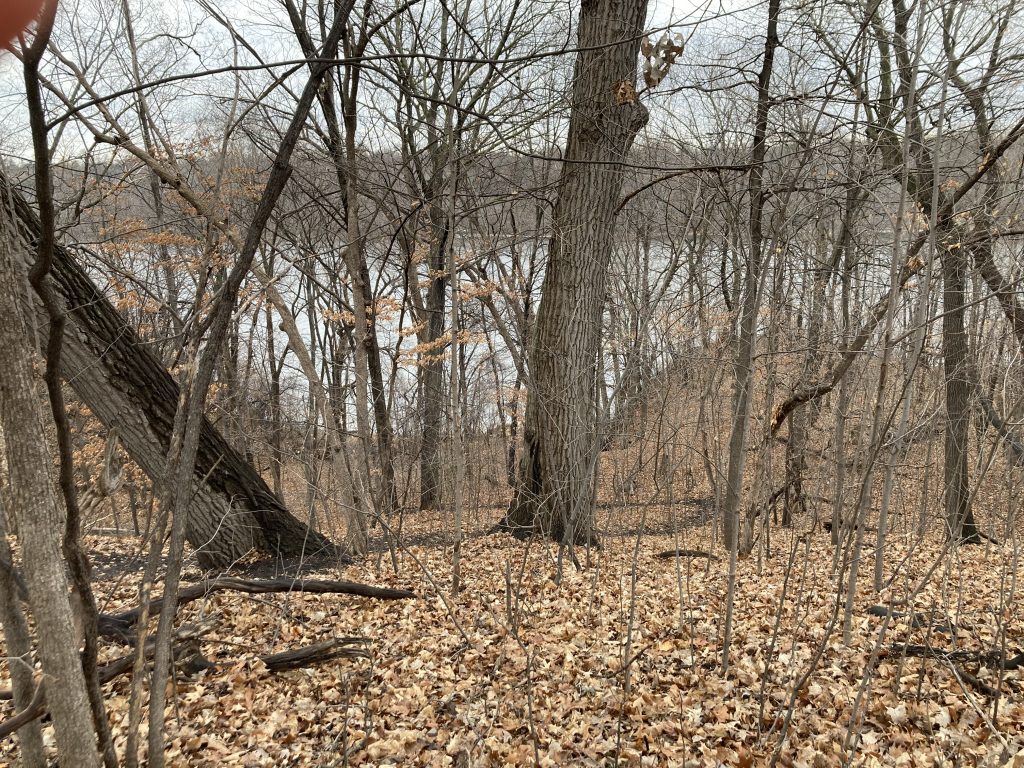3 miles
trestle turn around
32 degrees
Colder today, windier too. Back to winter layers. A lot of the run was a blur — or was it quick flashes?
10 Flashes
- looking down at the bare branches of the floodplain forest
- wet pavement by the welcoming oaks
- waving water under the lake street bridge
- uneven limestone also under the lake street bridge
- a woman with 2 dogs, one on each side, sprawled out on the trail
- the light blue-gray river below as I neared the trestle
- wind rushing past my ears
- a muddy trail on the grassy boulevard
- flashing lights from a parks truck
- the tree that looks like a person, with a burl right at eye level that looks like a head
before the run
Before the run, I gathered some more resources for my “how I see” project:
Reviewing more descriptions of ekphrasis, I’m wondering how it fits with what I’m trying to do. I wrote in my notes that my project exists somewhere between alt-text and ekphrasis.
Here’s a condensed version of a helpful article (Conventions of Ekphrasis) I found out conventions within the ekphrasis:
- Speaking out: giving a voice to the mute art object , artwork speaks to the artist or the poem will speak to the mute visual artifact , poet may implore the painting/sculpture to speak or to justify the artist or poet’s work — technical term for giving a voice to the mute art object is prosopopeia
- Praise: poet/persona frequently praises the mastery of the visual artist and his work
- Paragone Competition:competitive relationship between words and images, an implicit critique of the material, its stasis, and its immutability, Poet may seek to establish superiority of words over the painter/sculptor and his material limitations by suggestion they have: more immediate access to the real; more immediate access to the divine; that one art has a more direct relationship with Truth; that one exists in either time or space and therefore is more accurately representative through the accuracy of its resemblance; more education, learning and talent or that it is less crude
- Emotional response: deeply moving visual experience that triggers a latent or unresolved emotional vulnerability, “transfixing” the poet, speechlessness, ability to “trick” the poet into believing that the work is “real”, the painting “breathes” life while the poet remains “breathless” before it
- Stasis of the art object: painting is mute poetry and poetry a speaking picture
- Enargia: to make the object lively appear before the reader’s eye through detailed description, use of sensory information, imagery, etc… In other words, so ekphrasis will also attempt to visually reproduce the art object for the reader so that the reader can experience the same arresting effect as the poet
- Actions of the painter: linger on the actions of the visual artist concentrating on the act of creation and often paralleling the act of artistic creation with divine creation
- Artist’s studio: reference or be wholly concentrated upon the artist’s studio
- Museum ekphrasis: poet is wandering through the museum looking at various pieces and each begins to bleed into the poet’s poem/thoughts
during the run
Right before the run, I reviewed the ekphrastic conventions and decided to think about the competition between image and word — which has more access to the real? to truth? the divine? I had many thoughts — so many of them still floating, not quite remembered. I’ve decided to not try; if the thoughts are important, I’ll remember them at some point.
after the run
I kept trying to make more happen here — to find words for some of my thoughts, but we’re driving down to St. Peter for FWA’s band concert and I’m feeling the pressure to pack and get ready. So, that’s it. Oh — and this. I stopped at 2 miles to take this photo of the lake street bridge from below. I was inspired to take it because of a story RJP told me on our walk a few days ago. She and her friends hopped over a fence and walked up the arch over the water. Apparently there’s a room with a door and couch somewhere up in the arch where kids like to hang out. I thought about trying to get close to see it, but that would have required descending the uneven bricks and possibly twisting my ankle.

